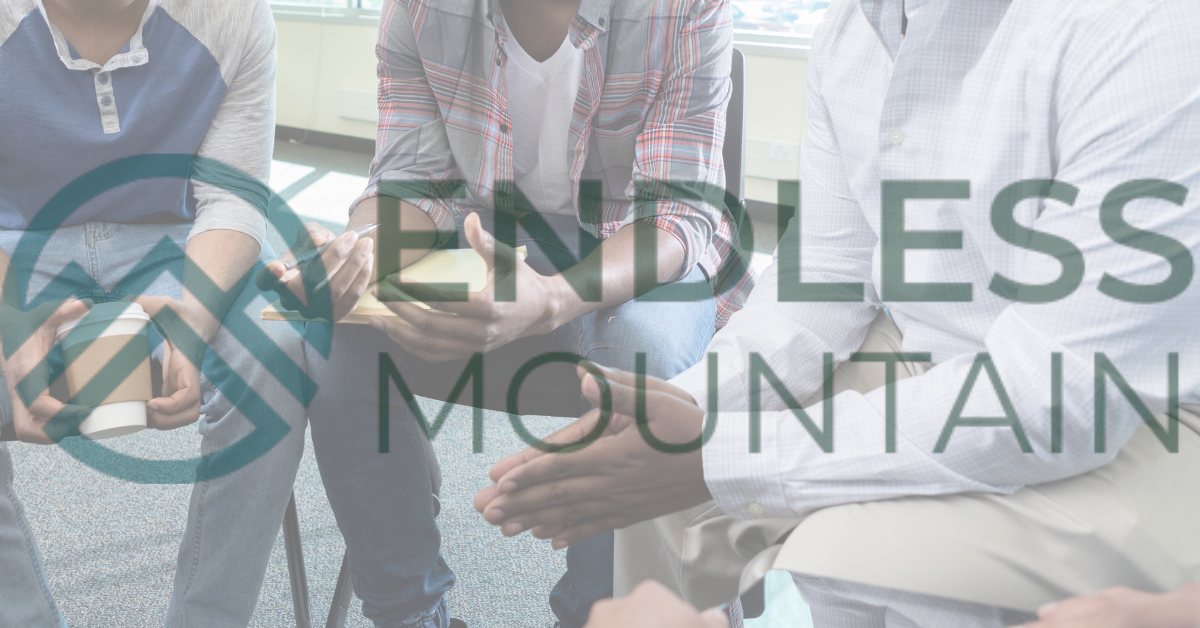What is Group Therapy and Why is it Effective in Rehab?
Group therapy is a cornerstone of addiction treatment programs, including those offered at Endless Mountain Behavioral Health Center (Endless Mountain BHC) in Sayre, PA. This therapeutic approach involves a structured environment where individuals struggling with addiction come together to share experiences, support one another, and work towards recovery under the guidance of a trained therapist. Understanding the principles and benefits of group therapy can highlight its critical role in effective rehabilitation.
What is Group Therapy?
Group therapy involves a small group of individuals meeting regularly to discuss their experiences, challenges, and progress. These sessions are facilitated by a licensed therapist or counselor who guides the discussion, ensures a safe and respectful environment, and provides professional insights.
Key Components of Group Therapy:
- Structured Sessions: Meetings are typically scheduled at regular intervals and follow a structured format.
- Facilitation by a Therapist: A trained professional leads the sessions, ensuring they remain productive and supportive.
- Shared Experiences: Participants share their personal stories, challenges, and successes, fostering a sense of community and understanding.
- Interactive Exercises: Activities and discussions designed to promote self-awareness, communication, and coping skills.
Types of Group Therapy in Rehab
Various forms of group therapy may be used in rehab settings, each offering unique benefits:
- Psychoeducational Groups: Focus on educating participants about addiction, its effects, and coping strategies.
- Skills Development Groups: Teach practical skills for managing addiction, such as stress management and relapse prevention.
- Support Groups: Provide emotional support and encouragement from peers who understand the struggles of addiction.
- Cognitive-Behavioral Therapy (CBT) Groups: Focus on changing negative thought patterns and behaviors associated with addiction.
- Process-Oriented Groups: Allow participants to explore and discuss their emotions and experiences in a supportive setting.
Why is Group Therapy Effective in Rehab?
Group therapy offers several unique advantages that contribute to its effectiveness in addiction treatment:
1. Peer Support and Connection
One of the most significant benefits of group therapy is the sense of community it fosters. Participants connect with others who share similar experiences, reducing feelings of isolation and loneliness. This peer support can be incredibly motivating and empowering, helping individuals stay committed to their recovery.
2. Shared Learning and Insights
Hearing about the experiences and strategies of others can provide new perspectives and practical advice. Group members learn from each other’s successes and setbacks, gaining valuable insights that can be applied to their own recovery journey.
3. Accountability
Group therapy creates a sense of accountability among participants. Knowing that others are expecting their attendance and participation can encourage individuals to stay engaged in their treatment. This accountability can be a powerful motivator to maintain sobriety and continue working towards recovery goals.
4. Improved Communication Skills
Regularly participating in group discussions helps individuals develop better communication skills. They learn to express their thoughts and feelings more effectively, listen to others, and provide constructive feedback. These skills are essential for building and maintaining healthy relationships in recovery.
5. Enhanced Coping Strategies
Group therapy sessions often involve discussing and practicing various coping strategies. Participants can share what has worked for them and learn new techniques from their peers. This collective knowledge helps individuals build a robust toolkit for managing stress, cravings, and other challenges of recovery.
6. Therapeutic Benefits
The group setting itself can be therapeutic. Sharing in a safe, non-judgmental environment helps individuals process their emotions and experiences. The therapist facilitates these discussions, providing professional guidance and support to ensure that the sessions are productive and beneficial.
How Endless Mountain BHC Incorporates Group Therapy
At Endless Mountain BHC, group therapy is an integral part of our comprehensive addiction treatment program. We offer various types of group therapy to address different aspects of addiction and recovery. Our experienced therapists create a supportive environment where participants can openly share and learn from each other.
Our Group Therapy Approach Includes:
- Regularly Scheduled Sessions: Consistent meetings to provide ongoing support.
- Diverse Group Formats: Including psychoeducational, skills development, and support groups.
- Professional Facilitation: Led by trained therapists who guide discussions and provide insights.
- Holistic Care: Group therapy is complemented by individual therapy, medical care, and other therapeutic activities to support overall recovery.
Take the First Step Towards Recovery
Group therapy is a powerful tool in the journey to recovery. If you or a loved one is struggling with addiction, Endless Mountain BHC in Sayre, PA, is here to help. Our comprehensive treatment programs, including group therapy, provide the support and resources needed to achieve lasting sobriety.

